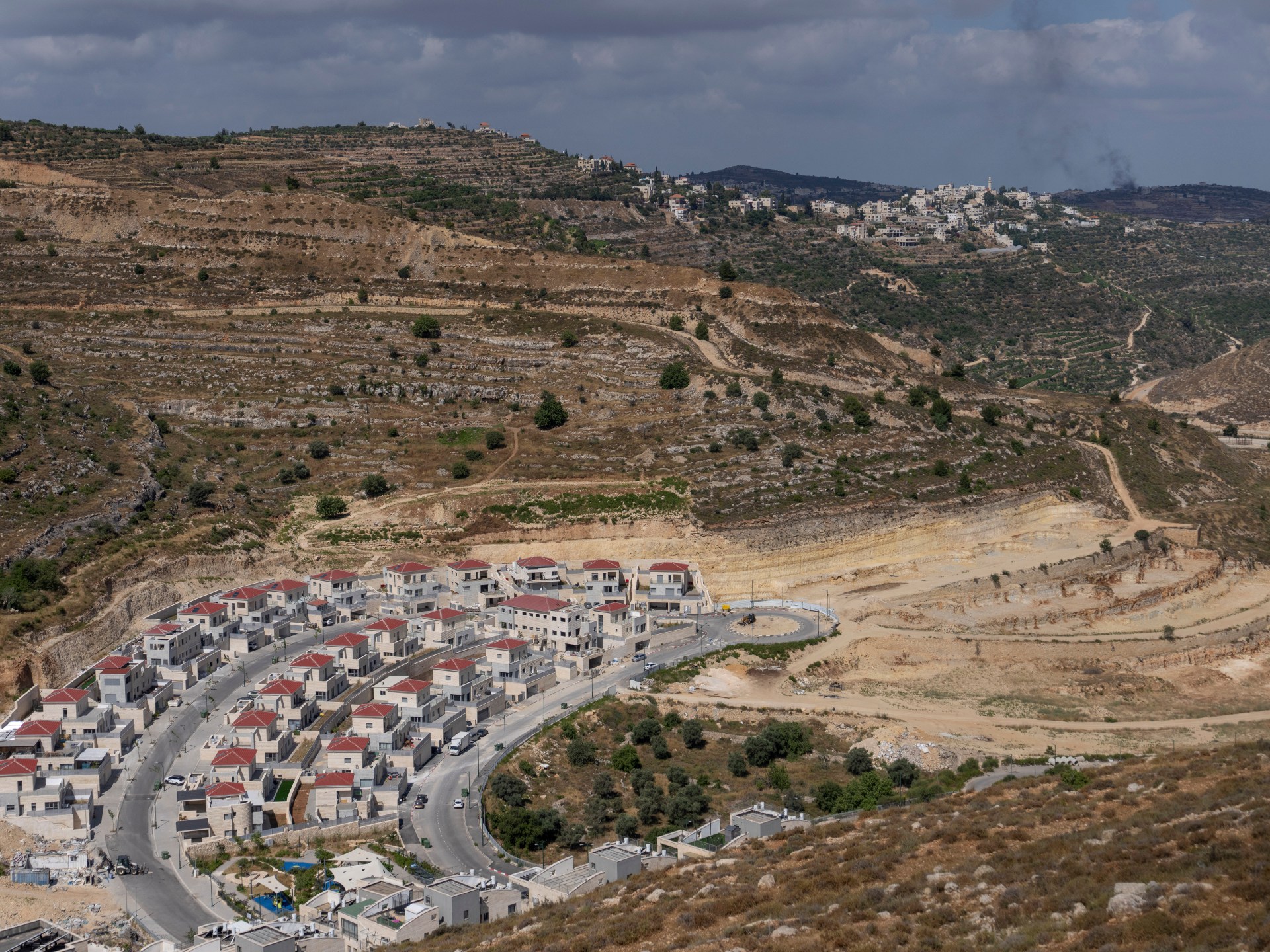The International Court of Justice (ICJ) has ruled that Israelâs continued presence in the occupied Palestinian territory is unlawful and should come to an end âas rapidly as possibleâ.
Nawaf Salam, president of the ICJ in The Hague, read out the nonbinding advisory opinion issued by the 15-judge panel on Israelâs occupation of Palestinian territory on Friday.
The judges pointed to a wide list of policies â including the building and expansion of Israeli settlements in the West Bank and East Jerusalem, use of the areaâs natural resources, the annexation and imposition of permanent control over lands and discriminatory policies against Palestinians â all of which it said violated international law.
The court said Israel has no right to sovereignty of the territories, is violating international laws against acquiring territory by force and is impeding Palestiniansâ right to self-determination.
It said other nations were obliged not to ârender aid or assistance in maintainingâ Israelâs presence in the territory. It said Israel must end settlement construction immediately and existing settlements must be removed, according to a summary of the more than 80-page opinion read out by Salam.
Israelâs âabuse of its status as the occupying powerâ renders its âpresence in the occupied Palestinian territory unlawfulâ, the court said.
âIsraeli settlements in the West Bank and East Jerusalem, and the regime associated with them, have been established and are being maintained in violation of international law,â the court said.
The courtâs opinion was sought in a 2022 request from the United Nations General Assembly.
The ICJ, also known as the World Court, is the highest UN body for hearing disputes between states.

Israel captured the West Bank, Gaza Strip and East Jerusalem â areas of historic Palestine that the Palestinians want for a state â in a 1967 war. It has since built settlements in the West Bank and East Jerusalem and steadily expanded them. It also had settlements in Gaza before a 2005 withdrawal.
The UN and the vast majority of the international community consider the Palestinian territory as Israeli-occupied.
âWatershed momentâ
Palestinian Foreign Minister Riyad Maliki told reporters in The Hague that the ruling signalled a âwatershed moment for Palestine, for justice and for international lawâ.
âThe ICJ fulfilled its legal and moral duties with this historic ruling. All states must now uphold their clear obligations: no aid, no assistance, no complicity, no money, no arms, no trade, no nothing â no actions of any kind to support Israelâs illegal occupation,â he said.
Riyad Mansour, the Palestinian ambassador to the UN, said the ruling was a âsignificant stepâ in the direction of ending the occupation and attaining the inalienable rights of the Palestinian people, including the right to self-determination, statehood and the right of return.
The right to return is a demand that Palestinians who were forced from their homes in the 1948 Nakba and the 1967 Arab-Israeli war be allowed to return to them.
Mansour said his team would study the entire opinion and âdissect every sentenceâ.
âWe will consult with an army of friends at the United Nations and in all corners of the globe,â he said, adding, âWe will produce a masterpiece of a resolutionâ at the UN General Assembly.
Israelâs Ministry of Foreign Affairs rejected the opinion as âfundamentally wrongâ and one-sided.
Israeli Prime Minister Benjamin Netanyahuâs office issued a statement in which it called the ruling a âdecision of liesâ that distorted the truth and asserted that âthe Jewish people are not occupiers in their own landâ.
Jeffrey Nice, a human rights barrister, told Al Jazeera that it will be hard for world leaders to completely âdisregardâ the ICJ ruling even though it is nonbinding.
âThis is one part of the legal system saying enough is enough,â he said.
He said it would also be âdifficult for the interested, informed, concerned public not to say, âItâs time Israel put its house in order.’â
Al Jazeeraâs senior political analyst, Marwan Bishara, said: âThere is a lot of room for hope that this ruling will support a movement, an international movement, across the board in the West and elsewhere in the world in favour of more sanctions, more pressure on Western governments to put more pressure on Israel.â
In a separate case brought by South Africa, the ICJ is considering allegations that Israel is committing genocide in its war on Gaza.
A preliminary ruling has already been made in that case with the court ordering Israel to prevent and punish incitement to genocide and to increase provisions of humanitarian aid.
In May, the ICJ had also ordered Israel to halt its offensive on Rafah, a city in southern Gaza, citing âimmense riskâ to hundreds of thousands of Palestinians taking shelter there. But Israel has continued its attacks on Gaza, including Rafah, in defiance of the UN court.
#ICJ #Israelâs #presence #Palestinian #territory #unlawful #IsraelPalestine #conflict #News,
#ICJ #Israelâs #presence #Palestinian #territory #unlawful #IsraelPalestine #conflict #News
